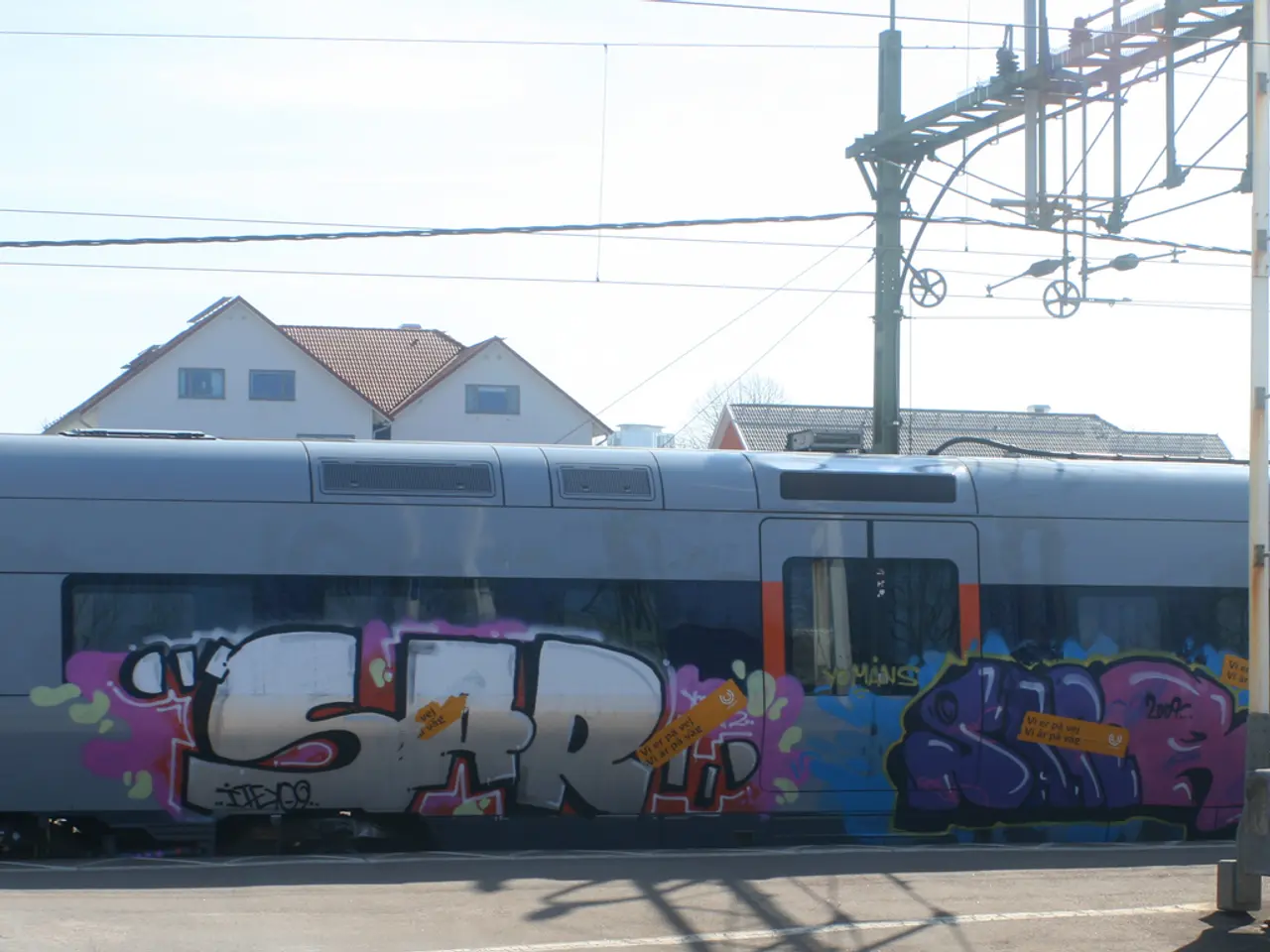Arms Prohibition Implemented on Berlin's Buses and Trains as of Now.
In a bid to enhance safety and reduce violent crimes, Berlin has instituted a comprehensive ban on knives and weapons on its public transport system. The move, which has sparked debate across the nation, is part of the city's efforts to tackle increasing violence incidents.
Under the new regulation, knives and other weapons, including pepper spray cans, are banned on all Berlin S-Bahn, U-Bahn, buses, and trams. This ban applies in train stations and on platforms but does not extend to bus and tram stops. Notably, the ban does not apply to knives carried by certain professions such as police, firefighters, chefs, caterers, delivery services, and other business owners who use knives as part of their work. Knives that are newly purchased and still packaged for transport are also exempt from the ban.
Senator Iris Spranger (SPD), Berlin's Interior Senator, is spearheading this initiative. She aims to expand the knife ban to cover all states, advocating for a "joint effort" among her colleagues. Spranger plans to continue pushing for the expansion of the knife ban at the Interior Ministers' Conference.
Other states, such as Hesse and Hamburg, have already introduced similar weapon bans. Hamburg, in particular, has explicitly banned carrying weapons, including knives, at its central train station and on local transport. This measure is part of the city’s efforts to ensure safety after violent incidents such as the recent stabbing at Hamburg’s central train station.
However, it's important to note that Germany does not have a current nationwide knife and weapon ban specifically on public transport. Measures appear to be regionally enforced in response to specific public safety concerns. Concrete plans for a weapon ban exist in Baden-Württemberg, but their implementation is yet to be seen.
The new regulation simplifies police work, allowing them to check for weapons at stations without specific suspicions. This is a significant shift from the previous policy, where checking for weapons at stations without specific suspicions was not allowed. The ban makes it easier for the police to conduct checks in public transport, contributing to a safer environment for commuters.
As the debate on public safety continues, Berlin's knife ban serves as a model for other cities and states considering similar measures to combat rising violence incidents. The focus remains on ensuring a secure and peaceful commute for all.
[1] Berlin Introduces Knife Ban on Public Transport to Combat Rising Violence, The Local, [https://www.thelocal.de/20210512/berlin-introduces-knife-ban-on-public-transport-to-combat-rising-violence] [2] Hamburg Bans Weapons at Central Train Station, Deutsche Welle, [https://www.dw.com/en/hamburg-bans-weapons-at-central-train-station/a-57078103] [3] Germany's Knife and Weapon Ban on Public Transport: A Regional Approach, The Conversation, [https://theconversation.com/germanys-knife-and-weapon-ban-on-public-transport-a-regional-approach-166183]
The new community policy, spearheaded by Berlin's Interior Senator Iris Spranger, aims to expand the knife ban across all German states, suggesting a potential nationwide policy in the realm of politics. This initiative is part of a broader effort to address rising violent crimes, particularly during general-news headlines and crime-and-justice debates. Other cities like Hamburg have already implemented similar weapon bans, specifically at central train stations and on local transport, as a response to violent incidents. This focus on vocational training, through implementing and enforcing such bans, is geared towards ensuring a secure and peaceful commute for all.







